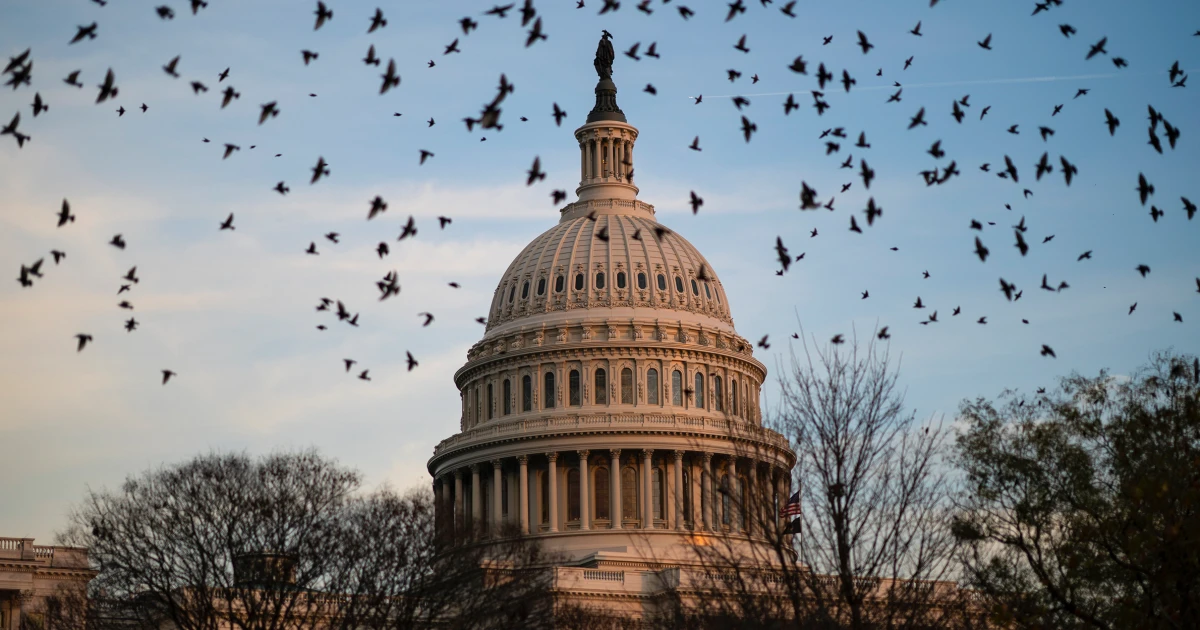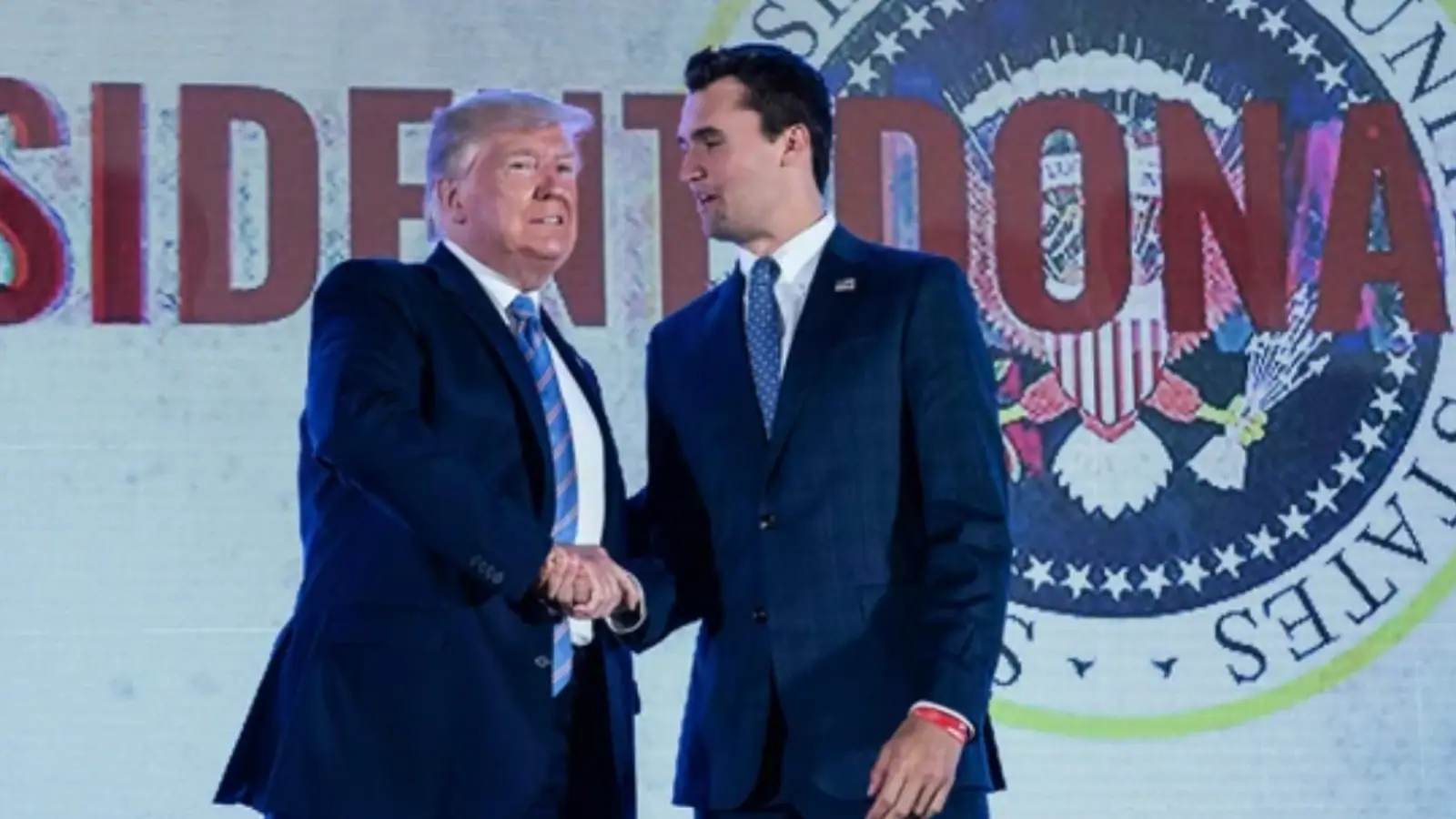
Welcome to the online version of From the Politics Desk, a newsletter that brings you the NBC News Politics team’s latest reporting and analysis from the White House, Capitol Hill and the campaign trail.
In today’s edition, we have the latest on the fallout from the first day of the government shutdown. Plus, Bridget Bowman runs through the initial wave of third quarter fundraising numbers. And Andrea Mitchell breaks down the stakes of the Gaza peace plan.
Sign up to receive this newsletter in your inbox every weekday here.
— Adam Wollner
Day 1 of the government shutdown: Both sides dig in
After the federal government shut down at midnight, the two parties aren’t any closer to resolving their impasse.
The Senate voted again on the two funding bills today that it failed to pass last night. One, a clean stopgap measure led by Republicans, failed 55-45, short of the 60 needed to advance. Three members of the Democratic caucus — Sens. Catherine Cortez Masto, John Fetterman and Angus King — voted for it while one Republican, Sen. Rand Paul, voted against it. The second, a Democratic-led measure that includes health care provisions, was voted down along party lines.
Here’s the latest fallout from the shutdown:
Vought lays down the hammer: White House budget director Russell Vought told House Republicans that the Trump administration will start firing federal employees in the next “one to two” days, according to two GOP sources on the conference call, Melanie Zanona, Julie Tsirkin and Scott Wong report.
Appearing in the White House briefing room, Vice President JD Vance said the administration would not target federal workers for layoffs based on their politics.
Vought also outlined the initial funding cuts the administration would be making, all of which affect blue states.
Adam Edelman and Peter Alexander report that Vought said the administration would freeze $18 billion in infrastructure funding for New York City, where Democratic congressional leaders Chuck Schumer and Hakeem Jeffries reside, to ensure it was not going toward “unconstitutional DEI principles.” A person familiar with the situation said “a review of contracts awarded under the Biden administration is required” and that “review is also paused because of the Schumer shutdown.”
And Vought announced that the administration would cancel “nearly $8 billion in Green New Scam funding” to 16 states — all of which Kamala Harris carried in the 2024 presidential election.
Blame game: A number of federal agencies are putting out messages blaming Democratic senators for the current government shutdown, in a sharp break from how departments have handled shutdowns in the past, Monica Alba, Laura Strickler and Amanda Terkel report.
Traditionally, agencies provide information on the status of the funding lapse and what services won’t be available, but they stay away from partisan talking points.
Fact check: Republicans are centering their shutdown message on a simple argument: “Democrats are grinding America to a halt in order to give illegal immigrants free health care.”
But as Sahil Kapur, Hallie Jackson, Kyle Stewart and Gabe Gutierrez report, that claim is highly misleading.
The Democratic bill would not change existing law barring people who are in the U.S. illegally from getting federal health care coverage. The dispute centers around immigrants whom the federal government has decreed as “lawfully present,” but who haven’t formally been given legal status that is enforceable in court.
On the campaign trail: The shutdown is threatening to upend this fall’s race for governor in Virginia, home to a wide swath of federal workers, Adam Edelman and Bridget Bowman report.
Former Rep. Abigail Spanberger, the Democratic nominee who has led in the polls, told NBC News in a statement that the shutdown would hurt Virginia’s economy, blaming Trump and Lt. Gov. Winsome Earle-Sears, the Republican nominee, for the coming damage and connecting the impact of closing the government to that of cuts by the Department of Government Efficiency this year.
Earle-Sears has sought to place the blame on Democrats, saying in an interview yesterday on “Meet the Press NOW” that Spanberger should have urged Virginia’s two Democratic senators, Tim Kaine and Mark Warner, to agree to Republicans’ funding deal.
Follow live shutdown updates →
We’d like to hear from you about how you’re experiencing the government shutdown, whether you’re a federal employee who can’t work right now or someone who is feeling the effects of shuttered services in your everyday life. Please contact us at tips@nbcuni.com or reach out to us here.
Democrats tout fundraising hauls ahead of contested Senate primaries
By Bridget Bowman
Tuesday marked a financial deadline — and not just for funding the government.
It was also the end of the third campaign-fundraising quarter, and candidates are already touting their hauls in an attempt to show early signs of strength.
One initial takeaway: The announcements suggest that the hotly contested Democratic Senate primaries are shaping up to be expensive.
Third-quarter fundraising reports aren’t due to the FEC until Oct. 15, so we can’t verify these fundraising numbers until we see those filings (which is important to keep in mind because campaigns sometimes exaggerate their hauls in news releases). But candidates use this period between the end of the quarter and the filing deadline to crow about their big numbers and grab headlines.
Texas: One of the most eye-popping sums came from Democrat James Talarico, a state legislator, who announced his campaign had raised $6.2 million in just three weeks, with more than 125,000 individual donors who largely made donations of $100 or less. Talarico said in a statement, “We’re underdogs in this fight against billionaire mega-donors and their puppet politicians, but more than one hundred thousand people have answered the call to build a new kind of politics.”
Talarcio’s chief rival in the Democratic Senate primary, former Rep. Colin Allred, announced that his campaign had raised $4.1 million in the third fundraising quarter, with over 100,000 donations that averaged $32 each. Allred’s campaign manager, Dan Morrocco, also described the campaign as “powered by working people,” calling it “a grassroots movement with real staying power.”
Maine: In Maine, a top target for Democrats, oyster farmer and military veteran Graham Platner announced a $3.2 million haul, while former congressional staffer Jordan Wood said he raised $3 million in the third quarter. (Wood’s campaign said that does not include any new loans from the candidate himself, after he loaned his campaign $250,000 in the second quarter, though the third quarter haul includes a $3,500 donation from Wood.)
Michigan: Democrats are also gearing up for a competitive primary in Michigan between Rep. Haley Stevens, state Sen. Mallory McMorrow and progressive physician Abdul El-Sayed. Stevens and El-Sayed have not announced their third quarter hauls yet, but McMorrow announced that her campaign had raised more than $1.6 million. That’s less than the $2.1 million she raised in the second quarter, but her campaign did tout that the third quarter haul included more than 26,000 individual donors, with the vast majority of donations $100 or less.
Gaza at a crossroads
Analysis by Andrea Mitchell
Only days after the humiliation of addressing a near-empty U.N. chamber over his policies in Gaza, embattled Israeli Prime Minister Benjamin Netanyahu was at the White House, heralding a potentially landmark agreement. If accepted by Hamas, it could help Netanyahu escape the trap of an endless war his own generals say he can’t win. The immediate price: calling Qatar’s prime minister from the Oval Office and apologizing for bombing his country and promising never to strike it again.
On paper, the Gaza plan heavily favors Netanyahu’s priorities: All the hostages would be released, alive and dead. Hamas would lay down its arms, renounce violence and give up any future role in Gaza’s governance — in effect surrendering. Israel would face no deadline to withdraw its troops. Wealthy Arab nations would transform the rubble from two years of war into a gleaming Mediterranean showcase for the region.
All this has been designed by two figures long involved behind the scenes in Middle East politics and finance: Trump son-in-law and first term White House official Jared Kushner, and former British Prime Minister Tony Blair. Both have weathered past controversies over relationships in the region: Blair for supporting George W. Bush’s Iraq War, and Kushner for seeding his hedge fund with $2 billion from Saudi Crown Prince Mohammed bin Salman. Just this week, Kushner sealed a $55 billion deal with the Saudi sovereign fund for another acquisition.
Still, if Hamas agrees, the Trump-Kushner-Blair plan could transform the region, answering the prayers of heartbroken hostage families and Gazans suffering from starvation and airstrikes. The U.N. would surge aid into the devastated strip. The economic benefits to Israel from normalized relations with the Gulf’s wealthiest Arab regimes could marginalize Netanyahu’s far-right coalition members. A construct painstakingly hammered out by former Secretary of State Antony Blinken during 13 shuttle missions to the region after the Oct. 7, 2023, massacre, but sabotaged by Hamas, would finally be realized. Importantly, it also imagines a post-war technocratic Palestinian leadership for Gaza and the West Bank, excluding the widely discredited Palestinian Authority leader Mahmoud Abbas.
A new wrinkle would be the composition of an international security force for Gaza. I’m told that, at the insistence of Gulf leaders, it would not rely on Arab soldiers to police Palestinian civilians. Instead, Indonesia, Azerbaijan and Italy have committed to providing troops. And the Saudis would control the IT infrastructure for banking and all communications to try to limit a resurgence of Iranian-backed terror proxies.
All this could be a Middle East fantasy, like so many others that have blown up before. But if it works, Trump would have earned his Nobel Prize.
That’s all From the Politics Desk for now. Today’s newsletter was compiled by Adam Wollner.
If you have feedback — likes or dislikes — email us at politicsnewsletter@nbcuni.com



